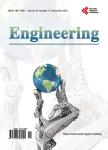On Thermodynamic Analysis of Substances with Negative Coefficient of Thermal Expansion
On Thermodynamic Analysis of Substances with Negative Coefficient of Thermal Expansion作者机构:Lone Star College-North Harris Houston USA
出 版 物:《Engineering(科研)》 (工程(英文)(1947-3931))
年 卷 期:2013年第5卷第11期
页 面:844-849页
学科分类:1002[医学-临床医学] 100214[医学-肿瘤学] 10[医学]
主 题:Negative Thermal Expansion NTE Materials Helmholz Free Energy Second Law of Thermodynamics Speed of Sound Volume Expansivity
摘 要:There are reports in the literature on the discovery of novel materials that were observed to shrink upon heating. Treatment of these materials in the same manner as the materials with positive coefficient of thermal expansion can lead to the misinterpretation of the laws of thermodynamics. This is because volume expansivity is usually defined at constant pressure. Negative values for volume expansivity can be shown using Maxwell’s reciprocity relations to lead to negative values for absolute temperature for ideal gas. For real systems, using Helmholz free energy analysis at equilibrium an expression for the volume expansivity was derived. It can be seen that this expression would be always positive for real physical changes, either heating or cooling. Isentropic volume expansivity is proposed as better suited for analysis of materials with negative thermal expansion, NTE and composites used in space such as Hubble telescope and Chandra telescope with zero coefficient of thermal expansion. This kind of a switch from isobaric to isentropic has precedence in the history of development of speed of sound.



